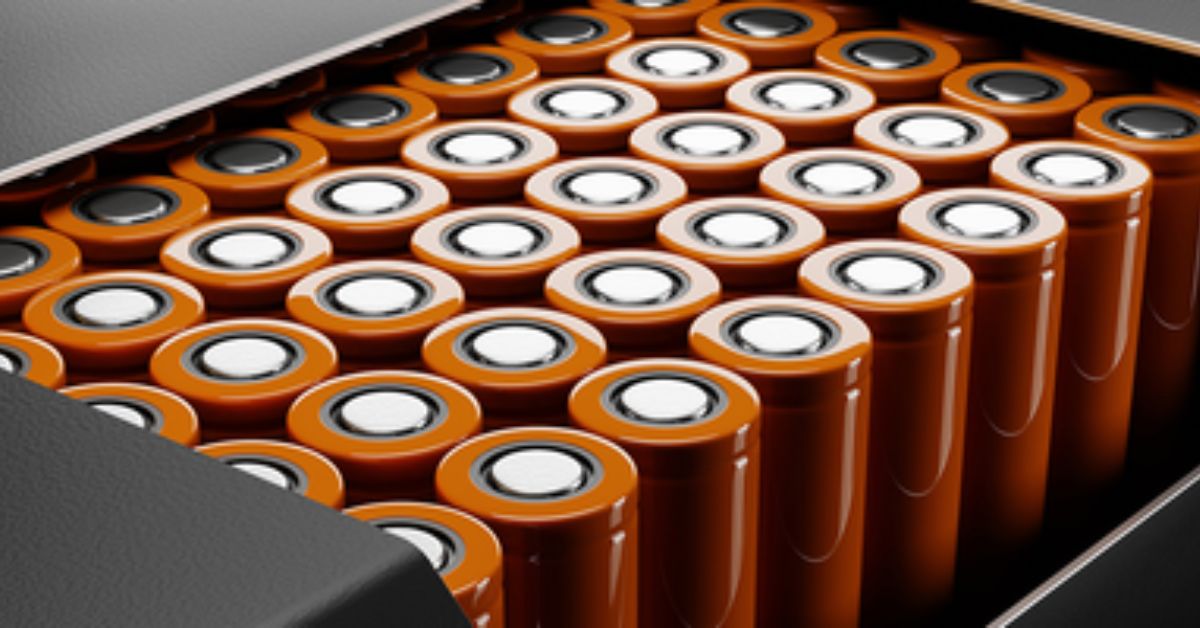Although the terms lithium-ion and Lithium Iron Phosphate Batteries are extremely similar, they have significantly distinct properties. When it comes to power supplies for various components in your organization, it’s not as simple as buying a new set of batteries and forgetting about it. Given the ubiquity of modern technology, electric cars, and portable power tools, selecting the appropriate type of battery is critical.
Lithium-ion batteries have recently emerged as one of the top-performing batteries and are extensively employed in a variety of products and applications. However, another form of battery that frequently goes unnoticed is Lithium Iron Phosphate Batteries
Both types of batteries make use of relatively new technology in the battery business. Previously, nickel-based batteries dominated the entire battery market. Lithium-ion batteries still have space to improve until the technology matures. As a result, their pricing is now rather high and out of reach for a number of producers.
Difference Between Lithium Iron Phosphate Batteries and Lithium-Ion Batteries:
Following are some major differences between these two types of batteries. For a better understanding we have divided it into categories:
Chemistries:
C-rates govern the charge and discharge rates of a battery. A battery’s capacity is commonly rated at 1C, which means that a rechargeable battery regarded at 1Ah must provide 1A for one hour. The same battery discharged at 0.5C would have to provide 500mA for two hours and 2A for 30 minutes at 2C.
Lithium Iron Phosphate Battery:
The cathode of lithium iron phosphate is iron phosphate, and the anode is graphite. It has 90/120 watt-hours of specific energy per kilogram and a nominal voltage of 3.20V or 3.30V. Lithium iron phosphate has a charge rate of 1C and a discharge rate of 1-25C.
Lithium Ion battery:
Because both have a graphite anode, lithium-ion can have two different cathode chemistries, lithium manganese oxide or lithium cobalt dioxide. It has 150/200 watt-hours of specific energy per kilogram and a nominal voltage of 3.6V. Its charge rate ranges from 0.7C to 1.0C because higher charges can severely damage the battery. The discharge rate of lithium-ion batteries is 1C.
Energy Level :
While making comparisons between lithium-ion and Lithium Iron Phosphate Batteries there are significant energy differences. Lithium ion has a higher energy density of 150/200 Wh/kg than lithium iron phosphate, which has a density of 90/120 Wh/kg. As a result, lithium-ion is typically the go-to source for power-hungry electronics that drain batteries quickly.
Lithium iron phosphate, on the other hand, outperforms lithium-ion in terms of discharge rate. At 25 degrees Celsius, Lithium Iron Phosphate Batteries have excellent voltage discharges. As the capacity is reduced, the discharge rate has little effect on the lithium iron phosphate battery.
Sophisticated Technology:
Lithium-iron phosphate batteries are a more recent technological advancement than lithium-ion batteries. Phosphate-based technology has significantly higher thermal and chemical stability. This means that, even if you mishandle a lithium-iron battery, it is far less likely to catch fire than a lithium-ion battery.
Life Cycle:
The lifecycle of lithium iron phosphate is 1,000-10,000 cycles. These batteries can withstand extreme temperatures with little degradation. They have a long life for applications that have embedded systems or need to run for extended periods of time before charging.
The higher energy density of lithium-ion makes it more unstable, especially in higher operating temperature environments. It has a life cycle of 500-1,000 cycles because the temperature range of the electronics or working parts can negatively impact it.
Durable, Reliable, And Effective:
The number of charge/discharge cycles a battery can withstand defines its life. According to some tests, Lithium Iron Phosphate Batteries can withstand approximately 2,000 charge/discharge cycles, compared to perhaps 1,000 for lithium-ion batteries. Rather than testing to the point of utter failure, these tests go to the juncture in which the batteries hold markedly less charge.
The main issue with lithium cells is degradation. A lithium-ion cell loses capacity over time, with a total lifetime of 2-3 years. The exact lifetime varies depending on the frequency of use, the quantity discharged between charging, and other factors such as cell temperature.
Cost-Effective:
The lithium-iron phosphate battery is less expensive to the consumer (due to safer materials, it is less expensive to manufacture and recycle) than the lithium-ion battery.
Safety:
If safety is an important factor in your battery purchase decision, Lifepo4 batteries may be the best option. This is due to its high chemical and thermal stability. It remains cool and will not typically experience thermal runaway, allowing the battery to function normally. The chemical structure of lithium-ion batteries, on the other hand, has a high energy density but is not as stable. It heats up quicker than lithium iron phosphate and is not suitable for use in unstable temperatures.
Manufacturers in a variety of industries use lithium iron phosphate in applications where safety is critical. The thermal and chemical stability of lithium iron phosphate is exceptional. In higher temperatures, this battery remains cool. It also becomes incombustible when mishandled during rapid charges and discharges or when there is a short circuit. Thermal runaway is uncommon in lithium iron phosphate batteries because the phosphate cathode does not burn or explode during overcharging or overheating because the battery remains cool.
However, lithium-ion chemistry does not offer the same level of safety as lithium-iron-phosphate. Its high amount of energy has the drawback of making the battery unstable. Because a lithium-ion battery can experience thermal runaway, it heats up faster during charging. Another additional benefit of lithium iron phosphate is the ability to dispose of the battery after use or failure. When exposed to a lithium-ion battery made with lithium cobalt dioxide chemistry, it can cause allergic reactions in the eyes and skin. When swallowed, it can also cause serious medical problems. As a result, lithium-ion batteries require special disposal considerations. Lithium iron phosphate, on the other hand, is nontoxic and it can be discarded more easily by manufacturers.
What Are the Applications of These Batteries?
Finally, lithium iron phosphate batteries are the safer option in terms of safety, and they are advantageous as long as the application does not require high energy density. Among the suitable applications are:
- Vehicle electric motors
- Applications in the military
- Medical equipment
One disadvantage of lithium iron phosphate is its weight, which is heavier than lithium-ion and is not always suitable for portable applications. As a result, lithium-ion batteries are recommended for a variety of applications, including:
- Smartphones
- Laptop computers
- Smartphones
Proper selection of battery for your application is critical, especially if you want it to perform to its full potential.
Aside from looking for the best energy sources in terms of portability, safety, and energy density, manufacturers must also consider the costs associated with the manufacture of electronics as well as disposal. Many manufacturers will opt for lithium iron phosphate as a less expensive battery material. Because of the safer iron phosphate chemistry, the batteries are less expensive because manufacturers do not have to spend more money recycling the materials.
In every way, a lithium iron phosphate battery is the superior option. These batteries provide improved performance, better value for money, and a significantly longer lifespan. Only when it comes to energy density does the lithium-ion counterpart shine brighter? As a result, they are a better choice for technological circuits such as smartphones, laptop computers, electronic cigarettes, and other electronic appliances.
Aside from electronics, Lithium Iron Phosphate Battery batteries are superior in every other application. Lithium Iron Phosphate Battery is the best investment for electric vehicles, solar panels, caravans, motorhomes, and any other high-capacity requirement.


